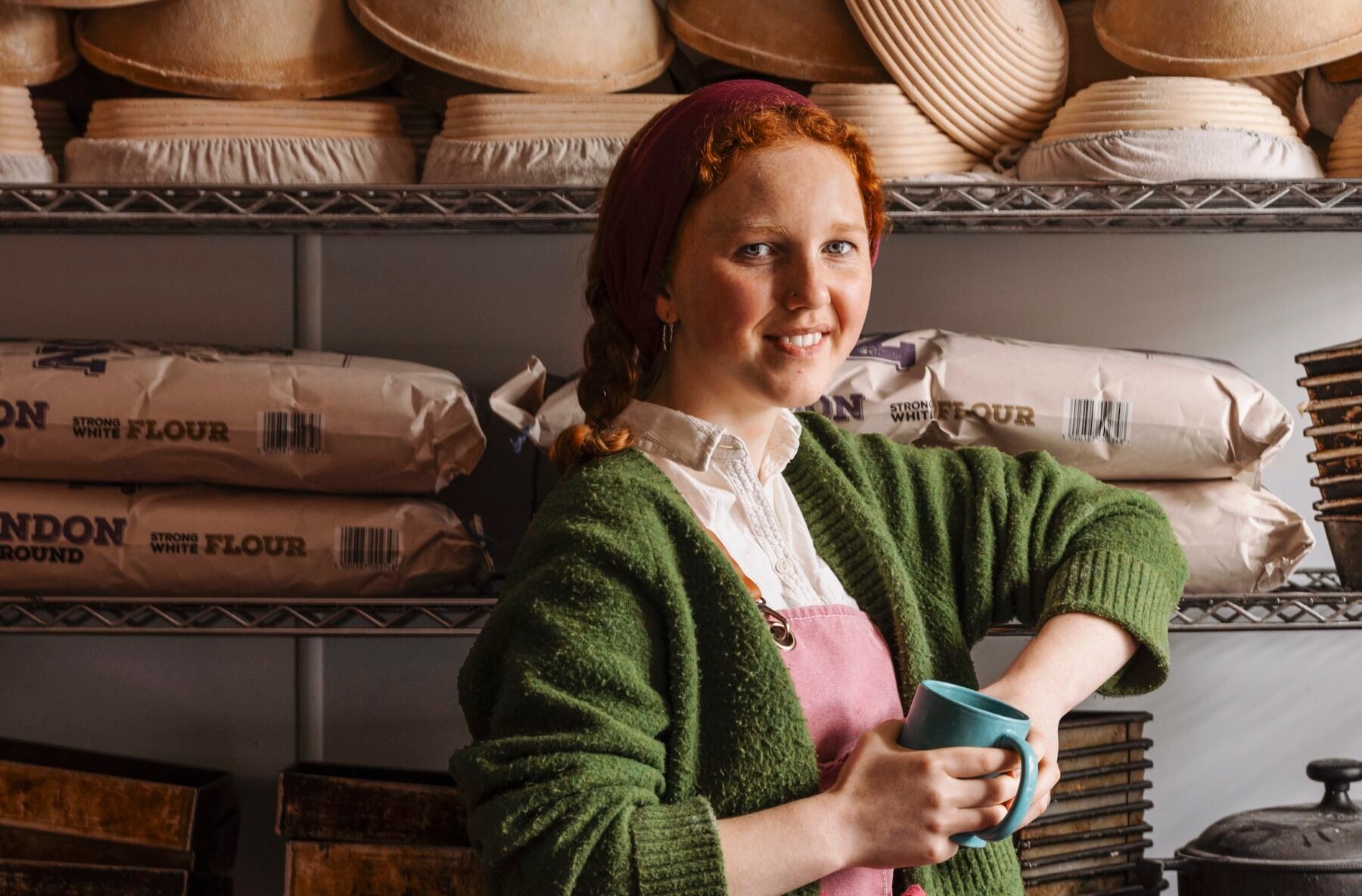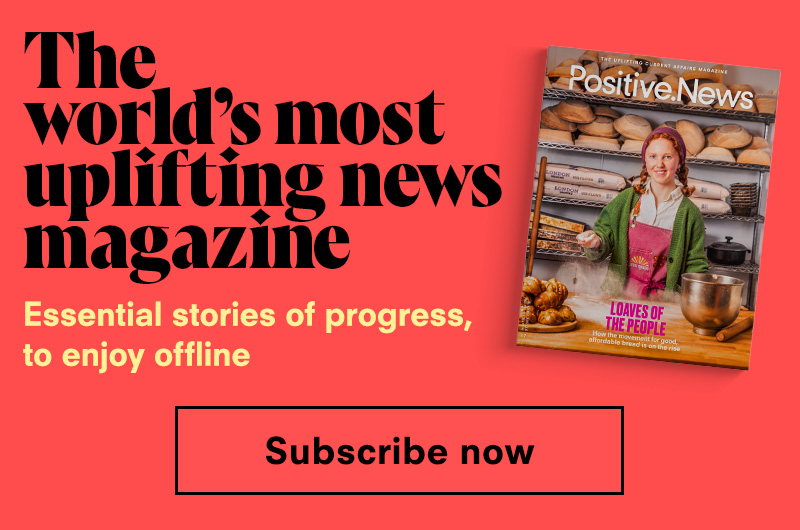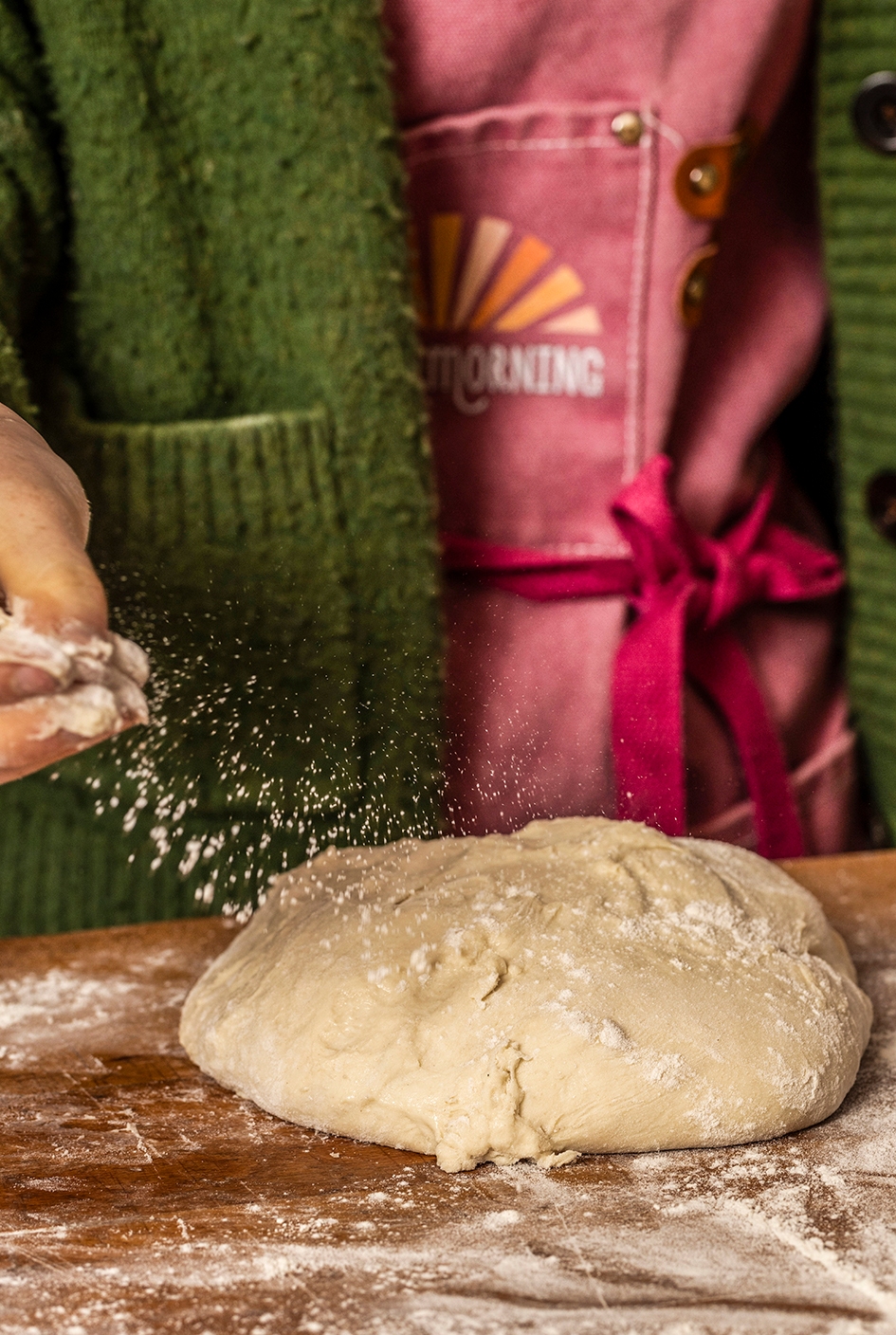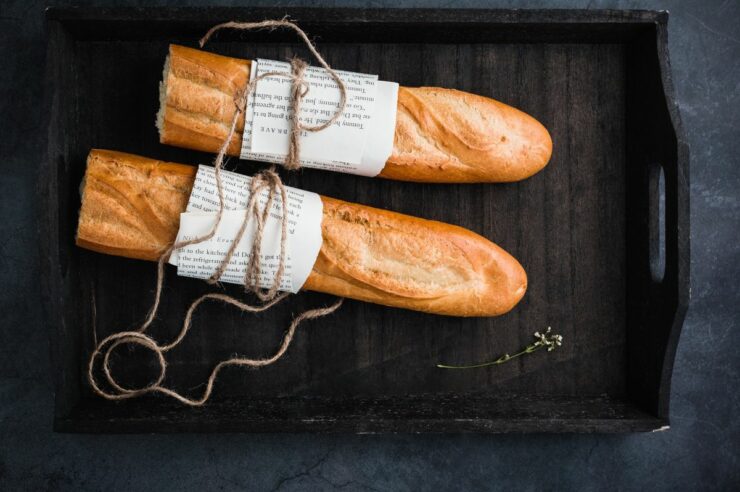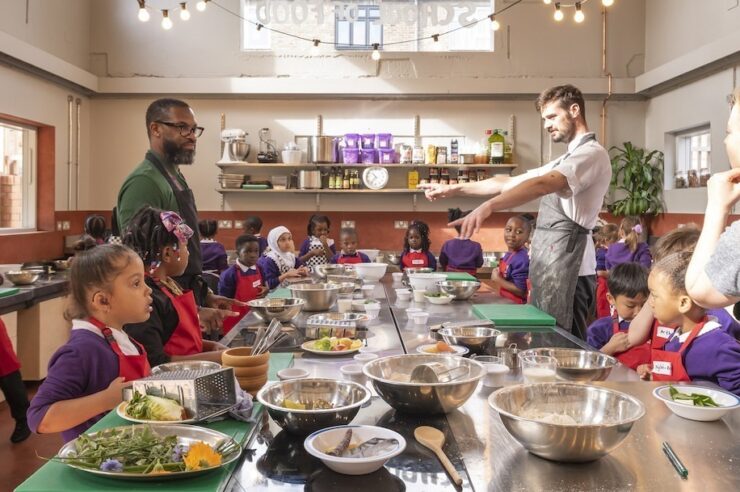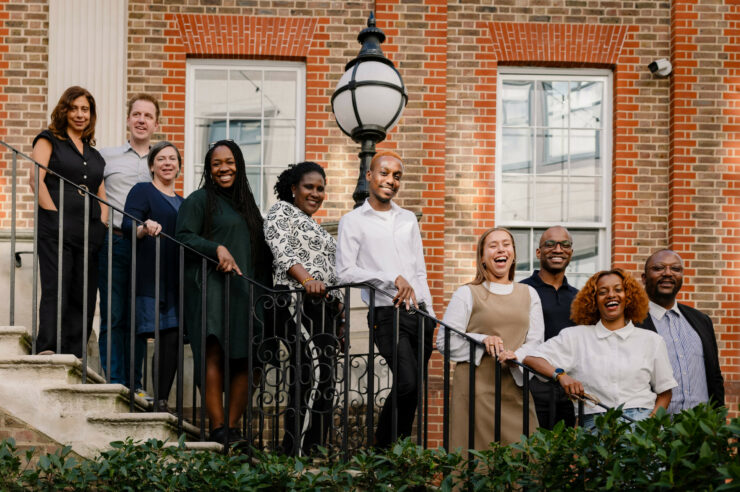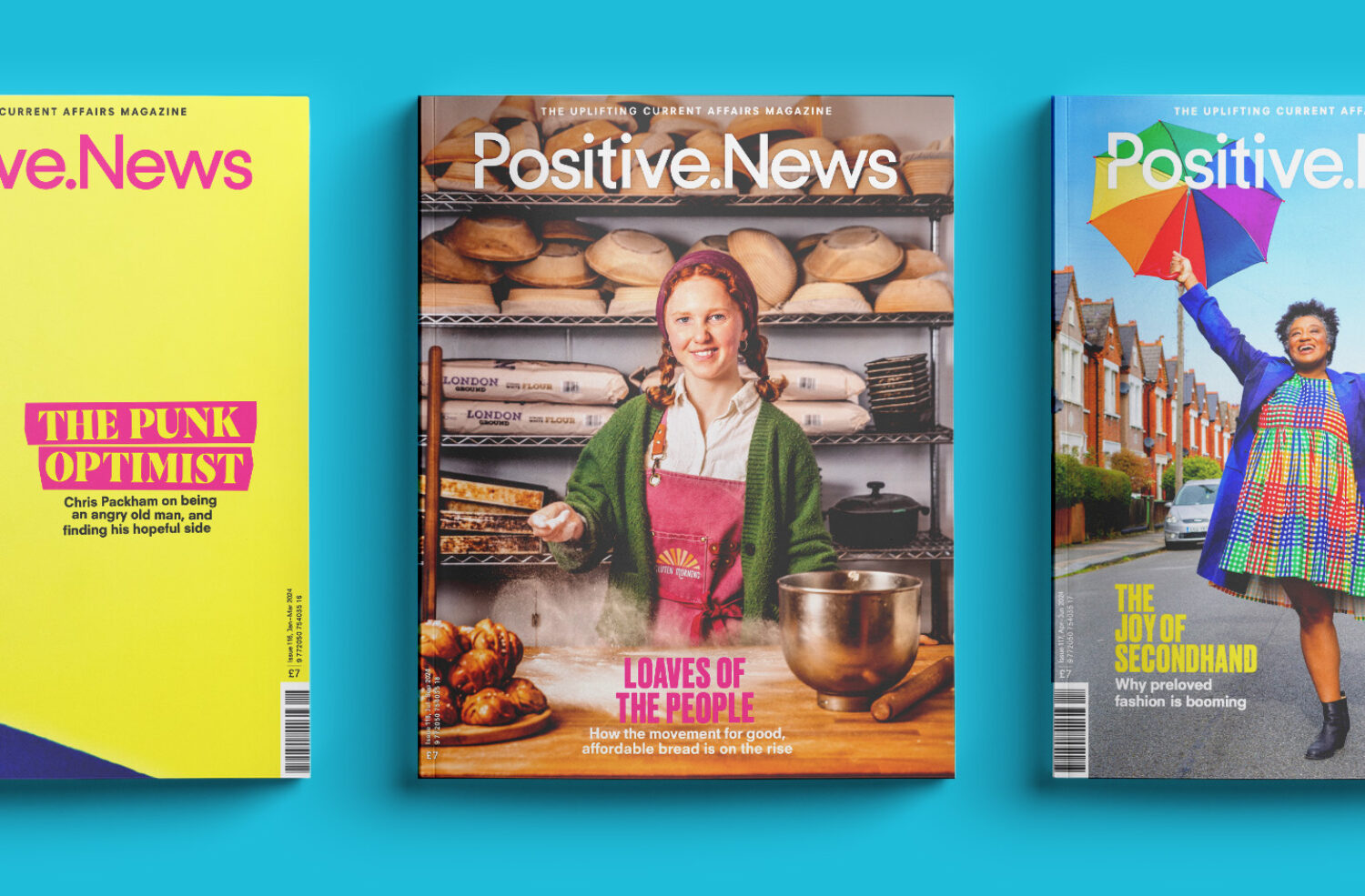After making bread lifted her out of a deep depression, Kitty Tait made it her mission to demystify the alchemy of baking – and reawaken others to the many benefits of an honest, unprocessed, crust
Kitty Tait’s to-do list reads like a continental breakfast spread. Pistachio twirls, flaky croissants, bow-shaped pastries. She’s beating butter as we chat. Folding and rolling croissant dough on repeat. Getting into her baker’s flow state.
Tait is one half of the father-and-daughter double act who, five years ago, burst on to the artisan sourdough scene seemingly from nowhere. They took what began as a home cookery project to a fully fledged bakehouse, the Orange Bakery, in a matter of months, and garnered a cult-like social media following in the process.
For Tait, it was the act – and the art – of baking that lifted her from the depths of a crippling depression, and while evocative creations like her Marmite-laced ‘comfort loaf’ and tiramisu Danish pastries are still very much on menu, today there’s also some karmic payback at work: through her Breaducating Britain project, Tait’s on a mission to demystify baking, and share with everyone what she knows to be the many benefits of great quality bread.
“Bread has given me so much joy – it’s a joy to make, eat and teach,” Tait enthuses. “But if you watch programmes about baking on TV, it’s made out to be rocket science. What I’d love is for all kids and adults to understand that bread is something really simple that we can all make at home with just four ingredients: flour, yeast, salt and water.”
Tait’s journey from energetic, sociable schoolkid to virtual recluse, and then her butterfly-like reemergence as baking wunderkind, began back in 2018 when, aged 14, she was struck down by mental illness. It had always been there, she now believes with the benefit of hindsight, but at the time she felt side-swiped.
“I couldn’t really relate to my peers in the same way that I could when I was younger, I wasn’t into the same things,” she explains. “At the same time, my brother and sister were doing GCSE and A-Level exams, and in a bizarre way for a 14-year-old I had an existential crisis. I just couldn’t see what it was all for.
“I became a shell, just lay in bed and wouldn’t leave the house. I almost couldn’t form sentences.”
With medication and therapy, and under the guidance of parents, Alex and Katie, Tait began exploring activities that might help her navigate a path through the daily anxiety attacks and crushing lows. Gardening, drawing, knitting were among the things she tried. “But nothing quite seemed to last long enough or give me a sense of hope, especially for the future,” she says.
A turning point came when Alex clipped a simple, no-knead bread recipe from a magazine and fired up his oven. By Tait’s reckoning, her dad’s previous efforts at baking produced barely edible bread breezeblocks. This, though, was different. Tait was entranced. She rolled up her sleeves and got stuck in. The effect was nothing short of miraculous.
“Baking filled my time and put me in a really calm state, but it also gave me a huge sense of purpose when all I really felt like was a burden,” she says. “I’m naturally quite a people pleaser, and the lovely thing was I could make a loaf, and then give it to someone to enjoy.”
Bread has given me so much joy – it’s a joy to make, eat and teach. What I’d love is for all kids and adults to understand that bread is something really simple that we can all make at home
Tait’s newfound zeal rapidly outstripped her family’s ravenous appetite for bread, and though she wasn’t quite up to feeding the 5,000, she began gifting her loaves to lucky locals in her home town of Watlington, Oxfordshire. Her flame red hair flowing behind her as she turned tail and ran, Tait would leave her fresh bakes on doorsteps in a charitable take on knock down ginger.
Word quickly spread and the freebies turned into a paid-for subscription service. Alex quit his job as a dyslexia tutor to become his daughter’s business partner, and after a successful spree of pop-ups, the pair drew on their global social media following to crowdfund a bricks and mortar store, opening on Watlington high street in 2019.
It was an instant success, selling out daily and sparking a spin-off book, Breadsong, named after the crackle and pop of a loaf when it’s fresh from the oven. However, ensuring long term viability would have meant scaling up in a way that neither father nor daughter relished. So instead, after four years of 5am starts and 12-hour days, they shut up shop last summer.

Using her loaf: Kitty Tait, baker and founder of the Breaducating Britain project
Tait has since scaled back to basics, selling her bakes at twice-weekly pop-ups. She runs the Orange Bakery from Watlington’s old scout hut, which is also the hub for Breaducating Britain. So far the social enterprise, partly funded by profits from the bakery, has distributed around 40,000 free bread kits through more than 200 different organisations to schools, prisons, food hubs and individuals.
“It’s really about trying to make good bread inclusive to everyone,” Tait says. “Baking your own is so empowering on so many different levels. Just the process of making it is great for your mental health. Nearly all the bread we eat is ultra-processed, so if you can bake your own, your physical health benefits too.”
The pandemic lockdowns saw a revival of interest in baking and set sourdough starters bubbling up and down the country. For some, the habit stuck. For others, it fell off amid the return to busy lives. At the same time, bread has become emblematic of a culinary culture war, with expensive artisan sourdough pitched as elitist and out-of-reach compared to the fluffy, processed supermarket loaf that might set you back less than a pound.
“When you’re buying a £4.50 sourdough, you’re supporting a worker and someone who makes bread as their profession – you’re not just paying for the ingredients and the electricity,” Tait points out.
“But I think we’re a little bit all or nothing as a culture, and we do need an in-between. Maybe not sourdough, maybe not from an artisan bakery – but bread that’s still really good for us.”
For Tait, making that middle-ground vision a sustainable one is more about grassroots education than going all out for mass market scale. The flour-powered revolution begins quietly, and at home, she suggests.
“Maybe it’s bread made by ourselves,” she offers. “I think sometimes we focus too much on scale. If we can empower individuals more, I think long term you can have a greater impact – even if it’s a slower burn.
“It costs 12p in electricity to make a loaf, another 25p for ingredients. You don’t have to knead it, you don’t need loads of time, and you don’t need a bread machine. And bread is so much more than a kitchen staple, at least it can be. Eating fresh bread brings us together and nourishes us in the most comforting way.”
Photography by Laurie Fletcher
Support solutions in 2024
Positive News is helping more people than ever to get a balanced and uplifting view of the world. While doom and gloom dominates other news outlets, our solutions journalism exists to support your wellbeing and empower you to make a difference towards a better future.
But our reporting has a cost and, as an independent, not-for-profit media organisation, we rely on the financial backing of our readers. If you value what we do and can afford to, please get behind our team with a regular or one-off contribution.
Give once from just £1, or join 1,400+ others who contribute an average of £3 or more per month. You’ll be directly funding the production and sharing of our stories – helping our solutions journalism to benefit many more people.
Join our community today, and together, we’ll change the news for good.
